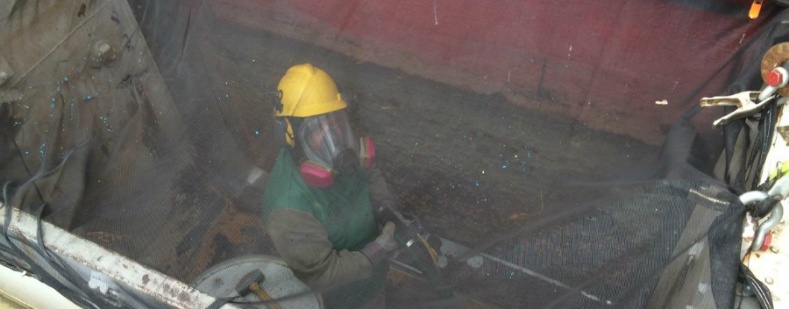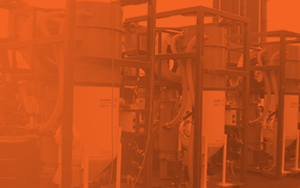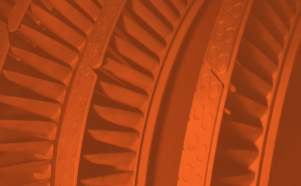Damage from corrosion is one of the largest threats to the safety and integrity of a ship. Without proper safeguards in the form of coatings, surface preparation, and cathodic protection, ships and boats of all sizes will eventually rust and deteriorate. While materials used to build ships vary, most types of metals corrode, especially in chloride-rich environments like sea water.
Read more >Sponge-Jet
Recent Posts
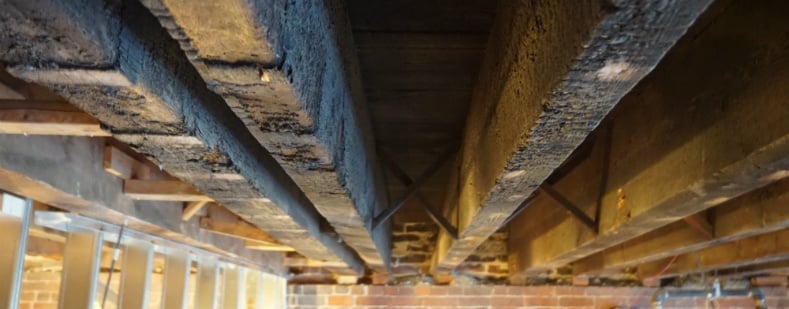
According to the National Fire Protection Association, fire fighters responded to 1.35 Million fires in the United States last year. The cause of these fires vary from grease fires while cooking to electrical overload on dated wiring. Industrial and Commercial property owners lose billions of dollars every year due to fire damage, but the majority of properties that get damaged are not a total loss. Most surfaces that suffer fire and smoke damage including brick, stone, and wood can be cleaned using Sponge Media™.
Read more >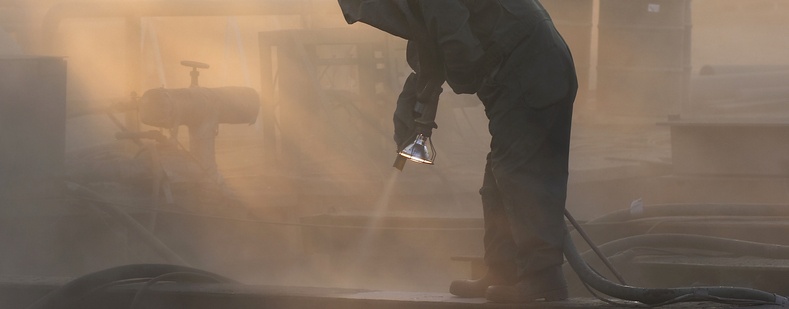
OSHA's Final Rule to protect workers from silica is now in effect. Companies that clean, restore, or prepare concrete and stone now have a greater job site responsibility related to respirable crystalline silica that becomes airborne during this process. In their Final Rule, OSHA has reduced the permissible exposure limit (PEL) for respirable crystalline silica to 50 micrograms per cubic meter of air, averaged over an 8-hour shift. To lower airborne silica created by construction processes, OSHA is requiring companies to add engineering controls to concrete, stone and other masonry cleaning and repair processes.
Read more >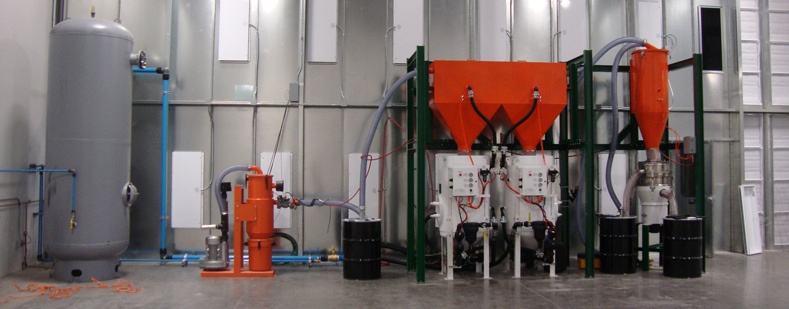
Sponge-Jet is phasing out modular sound-proof blast room and dust collectors which have previously been part of our KwietKave™ product line. Sponge-Jet will continue to offer all other stationary blasting, vacuuming, recycling and reloading solutions –now called Sponge-Jet Custom Integrations™replacing the KwietKave branding.
Read more >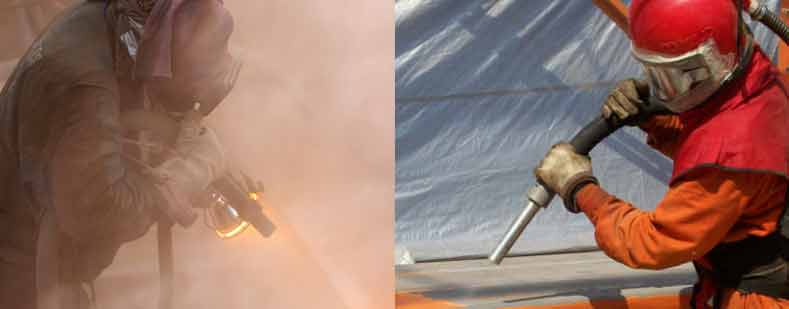
Sandblasting has been used as a cleaning method since the 1870s. Benjamin Tilghman, an American inventor from Pennsylvania conceived of the concept of sandblasting and invented the first sand blasting machine. This first machine and concept paved the way for the use of sand blasting in a multitude of industries, including restoration, oil and gas, and ship building.
Read more >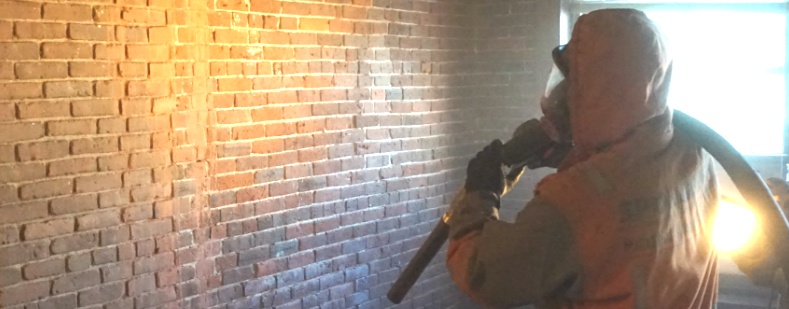
Brick has been used for the construction of homes and buildings since ancient times. The first known brick was discovered on an archeology site in the Middle East, dating its use back to 7500BC. This discovery means humans started using brick 3,000 years before the invention of the wheel! Similar to the wheel, the materials used to make brick has evolved.
Read more >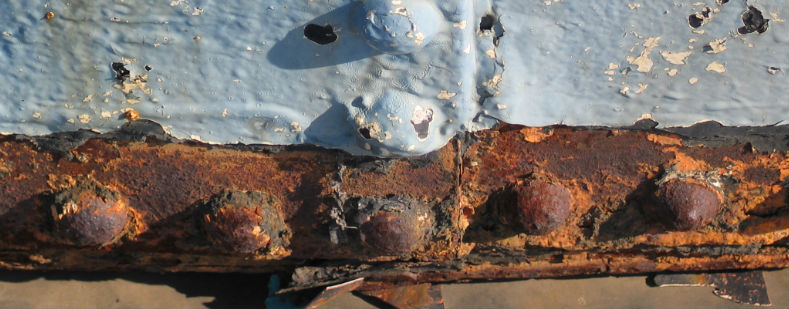
Corrosion is everywhere - from a speck of rust on a bridge’s bolt to the advanced chemical erosion of a process pump, to blistering paint on a building’s structural steel, fences, and railings. When coatings fail and metal components oxidize, property and infrastructure risk further damage. Corrosion weakens metal from the outside in - untreated metal can rust away completely, leaving behind gaping holes.
Read more >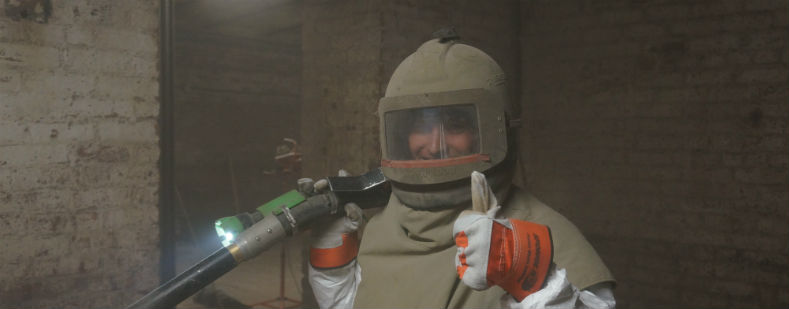
Personal protective equipment or PPE is defined by OSHA to be “equipment worn to minimize exposure to hazards that cause serious workplace injuries and illnesses. These injuries and illnesses may result from contact with chemical, radiological, physical, electrical, mechanical, or other workplace hazards.” PPE varies based on industrial application – a chemist's PPE would differ from the PPE worn by abrasive blasters.
Read more >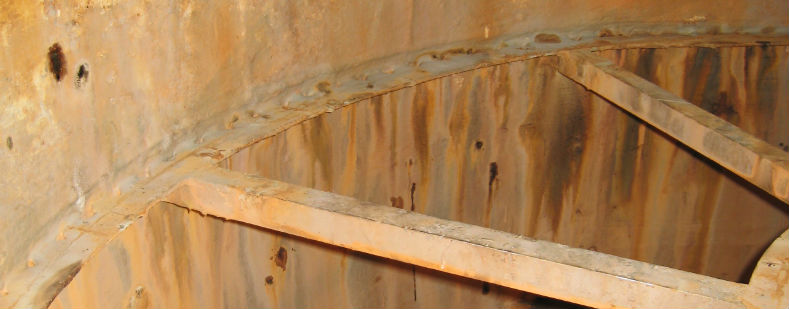
Every manufacturing facility and production plant around the world have tanks on their property. These tanks contain a number of different things - some tanks contain liquids like water used for cooling, while others store waste from the manufacturing process. Some tanks hold finished product in the form of liquids or gas. All tanks are built to meet specifications created to prevent tank ruptures. Unfortunately, a tank can perfectly conform to design specifications and still be affected by corrosion and coatings failure. Over time corrosion can lead to structural or tank wall failure creating both an environmental and safety impact.
Read more >
Conservators frequently turn to Sponge-Jet for help on historic restoration projects when there is a need to control dust, clean masonry substrates, or remove hazardous lead paint from steel and masonry. Some restoration projects include all of these challenges. Contractor R.J. Forbes faced this kind of multifaceted restoration project at the Breakers Mansion basement, tunnel, and boiler room in Newport, Rhode Island (USA). The project had several phases, including cleaning whitewashed brick and removing lead paint from steel beams all while visitors toured the property above the restoration site.
Read more >
